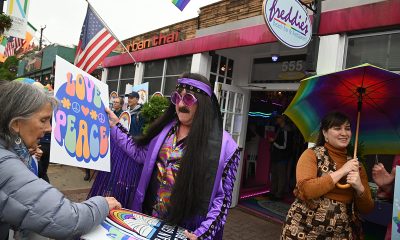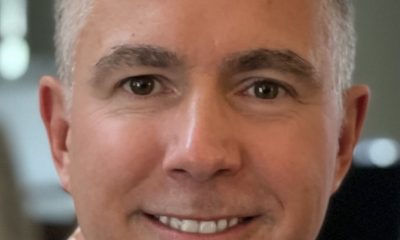Opinions
Bidding adieu to the inspiring Mart Crowley
And celebrating the impact of ‘Boys in the Band’
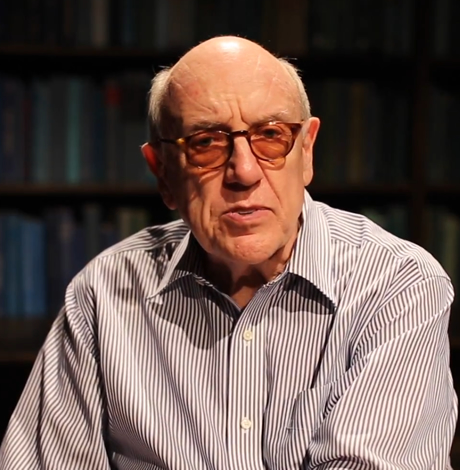
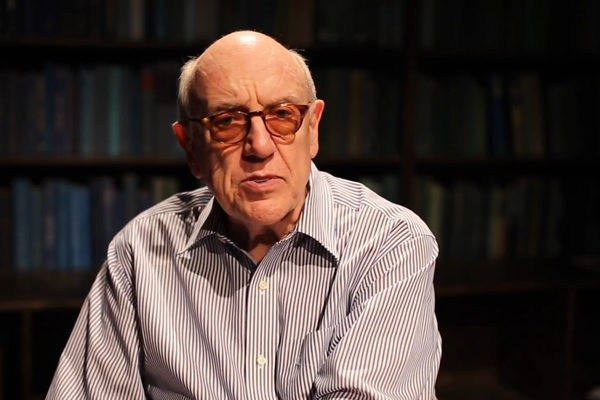
“…If we…if we could just…not hate ourselves so much. That’s it, you know. If we could just learn not to hate ourselves quite so very much.”
Perhaps it’s that line, spoken in the final moments of The Boys in the Band — written by Mart Crowley who died on March 7 at 84 years old — that has infused the 1968 play with its immortal reputation as the first gay play, like it or not, to depict us with a degree of verisimilitude.
In retrospect, it’s interesting to note that my exposure to Crowley’s Boys occurred while I was studying acting at Goodman School of Drama at the Art Institute of Chicago, between 1969 and 1971. Rarely having seen more than one gay male character on the stage or the screen at a time, for an impressionable young actor to witness eight (or nine) of them was astounding. Not only could you see yourself up there on the stage or on the Silver Screen, you could see who you might become (ye gods) or, if you were an aspiring thespian, who you might one day portray.
While Goodman was teeming with a homosexual population (staff, faculty, students), that didn’t translate to any form of gay liberation even as Stonewall came and went during my tenure there. The male acting students who flamed in the hallways butched it up in the classrooms (even under the tutelage of the most effete of instructors) and when playing a homo, they would play the character like they imagined a straight man would play gay so their portrayal resulted in an inauthentic mess which more often than not received high praise.
So, you can imagine when I saw some real queer actors, in addition to some actors who could really play queer, in roles that were written as authentically as any modern American gay voice ever to emerge from a typewriter.
It was a turning point in my consciousness—a Stonewall moment, if you will—and the reason that I would spend the next 50-plus years defending Crowley’s brilliant play.
While Boys is what Crowley is most celebrated for, he also spent time in Hollywood as a producer on Hart to Hart and wrote several other plays including a lovely memoir, A Breeze from the Gulf.
The grousing that I heard about The Boys in the Band had a familiar ring to it, resembling the voices of the characters depicted in The Boys in the Band: the poisoned barbs, the wicked one-liners, the character assassinations when Michael throws a drunken birthday party for his bestie, Harold, the Queen of Mean. And most of these negative pronouncements came from my gay brethren.
So what was the beef? “Those guys were so stereotypical, so gaaaaaaaay.” “They were so swishy.” “They were mean.” “They were self-loooooathing.” “I don’t want people to think I act like them.”
From the time I first saw Crowley’s play and today, I cannot count the number of parties I’ve attended that have very closely, if not almost identically, resembled the one he so eloquently paints in The Boys in the Band. If there’s a difference—and I suppose there is—it’s that we live on an equal playing ground now with the knowledge that everyone hates themselves to a degree. From the innumerable talk shows devoted to the subject and the hundreds of self-help books, not to mention the television shows devoted to deliverance from low self-esteem, it is a catastrophic epidemic in this country and not exclusively the province of gay men.
The condition that Michael and his cohorts suffer from is the human condition. This is not to suggest that Crowley didn’t intend for Michael to have internalized this notion in 1968 (the year Boys takes place), five years before the American Psychiatric Association removed homosexuality from its list of mental illnesses. It was virtually impossible for us to believe, or behave, otherwise—again, something Crowley depicts with meticulous honestly. His “boys” ooze vulnerability.
Over the decades, I had a spectacular ride with Boys, beginning in the early 1970s with a staged reading in Provincetown that was scheduled for one performance and lasted most of the summer. Later in the decade, after having seen the movie several times, I found myself in a windowless office in Hollywood doing temp work to pay the bills, gossiping with the cute guy in the adjoining office who was doing the same thing. His voice was so familiar.
Oh my God, it turned out to be Frederick Combs, the accessible one in Boys—the one who brought LaCoste shirts into fashion, the one everyone fell in love with—and the one who directed me in Robert Patrick’s T-Shirts and Harvey Fierstein’s The International Stud (Part One of Torch Song Trilogy), the two one-acts that put me on the map.
In the 1980s, I played Michael again—this time in Des Moines, Iowa, back-to-back on a bill with Robert Chesley’s Jerker in which I played J.R. Under the umbrella title Then & Now, it was a long and energizing evening. Finally, in the ‘90s, I did a celebrity reading fundraiser for the Victory Fund (again playing Michael) produced by Steve Tyler with Bruce Vilanch, Gordon Thomson, Chad Allen, Greg Louganis, and Michael Jeter.
In 1998, I was honored to introduce Mart at the Palm Springs International Film Festival, which celebrated the 30th Anniversary of The Boys in the Band.
And so now I bid adieu and express appreciation to an inspiring playwright who granted me permission to discover Michael by playing Michael at various junctures over three decades.
Michael Kearns is an actor, playwright and author.
Commentary
Celebrating 15th anniversary of Harvey Milk Day
A powerful reminder that one person can make a difference

Harvey Milk’s birthday, May 22, is officially a Day of Special Significance in California. Other states also honor Milk.
Milk was the first openly gay man elected to public office in U.S. history. In 1977, he was elected to a seat on the Board of Supervisors in San Francisco. His term began in January 1978 and ended in November when disgruntled former Supervisor Dan White assassinated Milk and Mayor George Moscone at City Hall.
In his 1982 book “Mayor of Castro Street: The Life and Times of Harvey Milk,” Randy Shilts wrote a moving account of San Francisco’s 1978 memorial for Milk. A “massive crowd stretched the entire distance from City Hall to Castro Street, some 40,000 strong utterly silent,” Shilts wrote. The crowd “ostensibly memorialized both George Moscone and Harvey, but few speakers quarreled that the crowd had amassed chiefly to remember the gangly ward politician [Milk] who had once called himself the mayor of Castro Street.”
Shilts quoted Board of Supervisors President Dianne Feinstein, at the time acting mayor, telling the mourners that Milk “was a leader who represented your voices.” Another speaker said Milk “was to us what Dr. King was to his people. Harvey was a prophet [who] lived by a vision.” Equality was Milk’s vision.
Shilts presciently titled the last section in his book “The Legend Begins.” In 1979, after a jury gave assassin White a light seven-year sentence, LGBT rioters rocked San Francisco in what is called “The White Night Riots.” During the riots, Shilts wrote that “a lesbian university professor yelled into a feeble bullhorn: ‘Harvey Milk lives.’” Since 1978, Harvey Milk’s courageous leadership has been celebrated globally.
Over four years, 2006-2010, San Francisco reminded the country that Milk was a gay man worthy of great honors. The 2008 movie “Milk,” filmed partly in San Francisco, with Sean Penn as Milk, ignited greater public interest in the legendary gay activist. Gay screenwriter Dustin Lance Black and Penn won Academy Awards in 2009.
The film led Gov. Arnold Schwarzenegger to sign legislation making Milk’s birthday a Day of Special Significance. Also, President Barack Obama awarded Milk with a posthumous Presidential Medal of Freedom. On Milk’s 84th birthday, the U.S. Postal Service issued a commemorative Forever stamp in his honor.
California’s Harvey Milk Day recognizes Milk for his contributions to the state. It also encourages public schools to conduct “suitable commemorative exercises” to honor Milk.
“To me, [Milk] was a man who was a capitalist, and an entrepreneur who happened to be gay,” said Republican Sen. Abel Maldonado, the only Republican to vote for the bill to create Harvey Milk Day.
The newer scholarship about Milk provided additional insight into his activism. “An Archive of Hope: Harvey Milk’s Speeches and Writings” edited by James Edward Black, Charles Morris, and Frank Robinson, published in 2013 by the Univ. of California Press, is an excellent example.
The book’s title is drawn from Milk’s 1978 speech called “The Hope Speech.” He spoke about people [gays, seniors, Black Americans, disabled, Latinos, Asians] “who’ve lost hope.” He proceeds to talk about inspiring hope in others who are struggling when the “pressures at home are too great.” It is a passionate speech, based largely on Milk’s conversations with people in the Castro. In a review of the book for The Gay and Lesbian Review Worldwide, I wrote it is: “An important contribution to the corpus of work on Harvey Milk as a writer and orator.”
Milk believed that it was important for members of the LGBTQIA+ community to come out. If more people were aware of their LGBTQIA+ associates who were their friends, family, and loved ones, then discrimination would end. To Milk, coming out would lead to ensuring LGBTQIA+ civil rights.
In 2007, during Pride in San Francisco I worked at a nonprofit’s booth in Civic Center Plaza. A man stopped to talk. I mostly listened. He was a veterinarian from a small town in Arkansas. He was gay and closeted. He regularly visited San Francisco for Pride. Afterward, he regularly returned to his closeted life in Arkansas. I felt sorry for him. Though I was a stranger to him, he needed to come out to me. I was reminded of Milk’s wisdom about the freedom of coming out.
Harvey Milk Day is for all people who need hope. Milk’s life is a lesson that one person can make a difference. A strong, united community inspired by Milk and others has changed and continues to change the world.
Milk’s short political career led to long-term LGBTQIA+ political leadership from the Bay Area to Washington, D.C. to Miami to Seattle. To paraphrase a Woody Guthrie song: This LGBTQIA+ Land is Our Land. Happy Milk Day 2024!
James Patterson is a lifetime member of the American Foreign Service Association.
Opinions
Rosenstein: Vote McGuiness for Delaware’s 14th District
For responsible growth and continued improvements in Sussex County
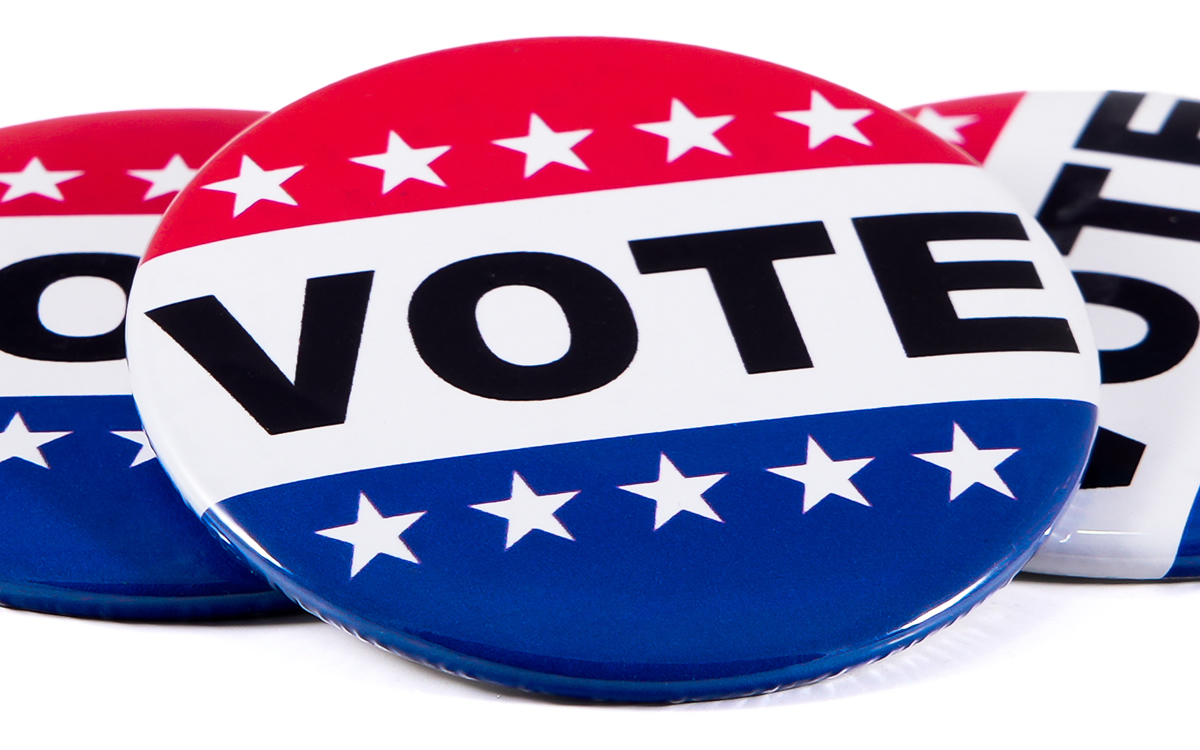
I know Kathy McGuiness, and there is no one more qualified to replace Pete Schwartzkopf as 14th District Representative.
I have owned a home in Sussex County for more than 25 years, and have been coming to Rehoboth Beach for 40. I followed Kathy’s career, and know the time she has given to the people of the state and District. No one can match her ability to do the job. Kathy is a health care professional, and a mother, committed to continue to fight to protect every woman’s health and reproductive rights.
“As a registered pharmacist, I’ve been on the front lines when it comes to health care,” she said. “I’ve been with patients who cried at the counter when they couldn’t afford their medicines, administered COVID shots during the pandemic, struggled when my mother couldn’t schedule a doctor’s appointment for weeks, and joined my sister to advocate for her son, who is in a wheelchair, when he can’t get the services he needs. We have a health care crisis in Sussex County.”
Kathy is committed to attracting, and retaining, doctors, nurses, specialists, and pharmacists, to the fastest-growing county in the state. She has committed to seeing state and federal regulators never again identify the families, and retirees, in the 14th district, as being under-served in healthcare.
Kathy graduated from Cape Henlopen High School and her mom taught 6th grade at Shields Elementary. She knows first hand the struggles of our children, and teachers. She is committed to listening to, and working with, local and state officials, parents, and teachers, to ensure the resources needed to facilitate the best possible education for all our children.
Born and raised in the district, now bringing her family up here, Kathy understands the value of the unique, precious, natural resources in Eastern Sussex County. She will continue to work to protect our beaches and natural resources. She will fight for state funding for sensible, responsible, infrastructure and traffic projects, that truly meet the needs of the community. Kathy takes the fight to Dover understanding tourism with her experience as a six-term Rehoboth Beach Commissioner. She is a businesswoman, and founding president of Rehoboth Beach Main Street. She will fight to protect and promote local businesses, press DelDOT to improve traffic flow, and importantly, work with state and county officials to create more safe and affordable workforce housing.
No one has the broad experience Kathy has. She has been a member of the 14th District’s Democratic Committee; a trustee at Delaware State University; a member of the Delaware Film Commission; a member of CAMP Rehoboth Board of Directors and the YMCA Sussex Board; and Lewes-Rehoboth Meals on Wheels board. She volunteered with Delaware Food Bank, Just Soup Ministry, Shepherd’s House, Planned Parenthood, and the Seashore Striders.
Kathy was named State of Delaware, Tourism Person of the Year; Business and Professional Women’s Employer of the Year; and recently, 2022 Delaware Pharmacist of the Year. She is married to Steve, a river boat pilot, and is mom to three amazing children. Has one grandchild, and another on the way.
Let me address the only issue some may have with Kathy. She was accused of six very questionable criminal counts when serving as a successful State Auditor. Of the most serious, the jury found her not guilty on three, and the judge threw two others out. She was convicted of one simple misdemeanor, for hiring her daughter as an intern, which she only did after the Delaware Attorney General assigned to her office, said it was legal. As Pete Schwartzkopf said at her campaign announcement, this is nothing that so many others in the state have done. Kathy said, “I’ve paid my debt to the state through a fine and community service. Now I’m ready to get back to what I have done my entire adult life — help and serve the people of Eastern Sussex County.”
So, I am honored to add my name to those of Speaker of the Delaware House Pete Schwartzkopf, 20th District Representative Stell Selby, Dewey Beach Mayor Bill Stevens, Dewey Council member Paul Bauer, former Rehoboth Planning Commission Chair Richard Perry, former Ambassador Tom McDonald, former Rehoboth Beach Commissioner Steve Scheffer, former Dewey Mayor Pat Wright, and former Democratic County Chair and Judge, Mitch Crane, all endorsing Kathy McGuiness for 14th District Representative.
They know Kathy is the candidate for those who want to see responsible, sustainable growth, and continued improvements in Sussex County. She said, “When elected, I promise to listen to your questions and concerns. I will reach out, and remain available for conversations with everyone. I will serve with renewed dedication and humility. I promise to give it everything I’ve got.” So, vote Kathy McGuiness for District 14th Representative on Sept. 10. She will make us all proud.
Peter Rosenstein is a longtime LGBTQ rights and Democratic Party activist. He writes regularly for the Blade.
Opinions
Advocating for the Queer Community On and Off The Job
One organ donor can save up to eight lives
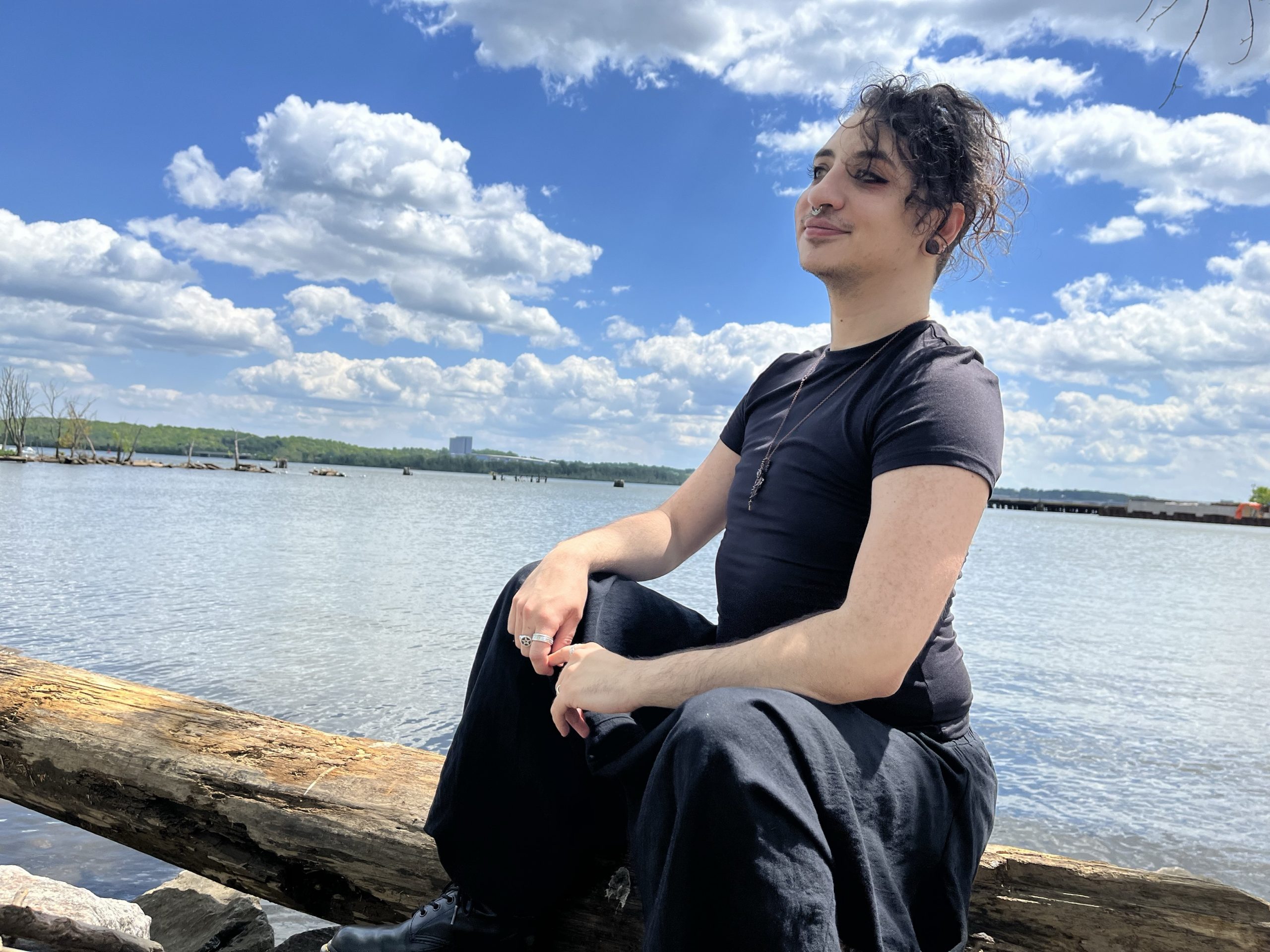
As a proud trans man, Kai Sprando recognizes the importance of visibility and education in fostering understanding and acceptance of the LGBTQIA+ community. His commitment to spreading awareness and advocating for queer experiences is something he champions on both a personal and professional level.
In 2019, Kai began working in the organ donation field as it provides a convergence of purpose and opportunity, which he embraced wholeheartedly to make a difference in people’s lives. Kai works as an Instructional Designer at Infinite Legacy, where he develops educational resources, curriculum and training plans primarily for clinical staff. At Infinite Legacy, he found not just a job, but a community of compassionate individuals who support him in every aspect of his trans journey.
In Kai’s eyes, organ donation is more than a medical procedure; it is a lifeline and second chance for individuals with end stage organ failure. He also sees it as a way for organ donors to continue their legacy of kindness beyond their time on Earth. He is deeply moved by the profound impact that one organ donor has to save up to eight lives. This knowledge fuels Kai’s passion for his work, driving him to encourage others to learn about the transformative power of organ donation.
For Kai, education is key. He believes that the more people know about and understand organ donation, the better equipped they are to make informed decisions and advocate for the cause.
“The opportunity to make a difference by saving lives as an organ donor is very powerful. When I pass, I want to know that if nothing else, I tried my best to help others. That’s what life is all about to me…finding ways to make the hard things in life a little less hard, one act of kindness at a time.” said Kai.
With his background in teaching and his viewpoint as a trans man, Kai has been invited to and spoken at several national organ donation and transplantation conferences providing insight and perspective on what it means to be trans and queer, allowing his peers the ability to be more effective and caring while interacting with LGBTQIA+ people and their families.
Kai is passionate about advocating for marginalized communities and through his openness, vulnerability and willingness to share his lived experiences, Kai contributes to positive change in healthcare, particularly around gender and sexuality representation.
As he continues to advocate for change and build a better infrastructure around LGBTQIA+ needs and representation, Kai remains hopeful for the future. He has seen the important shifts and positive changes in healthcare in recent years and is determined to keep pushing for progress, one conversation at a time.
Everyone can register to be an organ donor. To learn more, visit infinitelegacy.org.
-

 South America2 days ago
South America2 days agoPeruvian government classifies transgender people as mentally ill
-
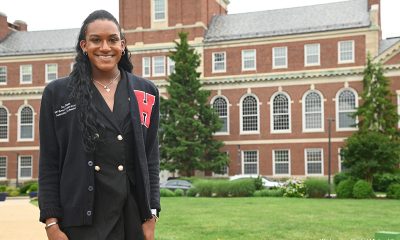
 District of Columbia2 days ago
District of Columbia2 days agoMeet Jay Jones: Howard’s first trans student body president
-
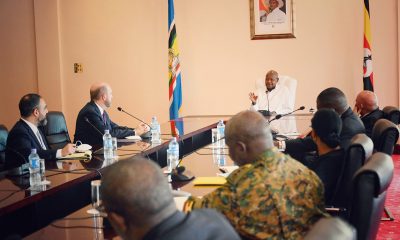
 Africa4 days ago
Africa4 days agoUgandan president meets with US ambassador
-
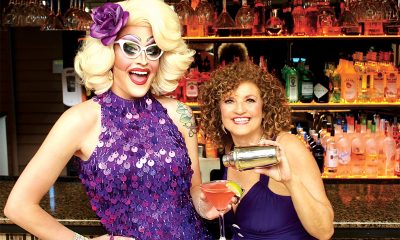
 a&e features2 days ago
a&e features2 days agoWhat’s new at Rehoboth Beach for summer 2024



